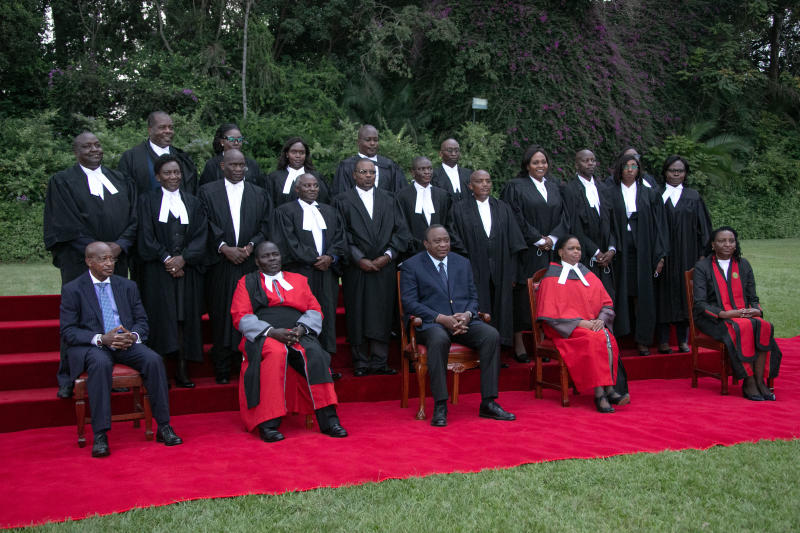×
The Standard e-Paper
Kenya’s Boldest Voice

President Uhuru Kenyatta and C Martha Koome with Judges of the Environment and Land Court at State House, Nairobi. June 4, 2021. [PSCU, Standard]
President Uhuru Kenyatta suffered another blow after the High Court declared that he is in violation of the Constitution by refusing to appoint six judges.